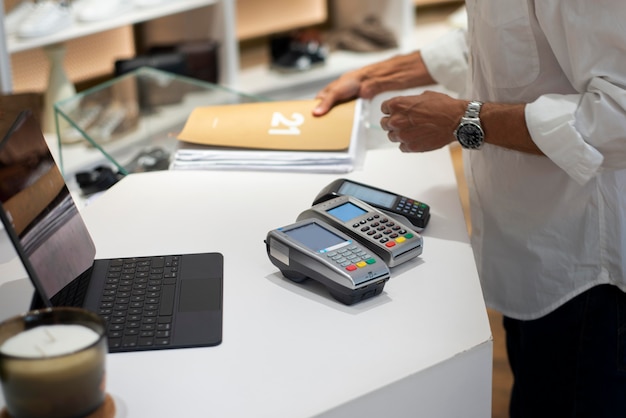How Much Does a Cashier’s Check Cost at Bank of America?

### What Is the Bank of America Cashier’s Check Fee?
If you have a checking or savings account with Bank of America, you can get a cashier’s check for a $15 fee. However, if you’re part of the Bank of America Preferred Rewards program, this fee is waived.
Other banks also charge for cashier’s checks. For example, Wells Fargo and PNC Bank usually charge $10 but offer them for free with certain accounts. Capital One charges $20 for online requests or $10 if you get it in-branch.
### How To Get the Bank of America Cashier’s Check Fee Waived
You can avoid the $15 fee by enrolling in the Bank of America Preferred Rewards program. To qualify, you need to have a combined average daily balance of at least $20,000 over three months in your Bank of America and Merrill investment accounts. Being part of this program not only waives the fee but also provides additional banking rewards and services.
### How To Get a Bank of America Cashier’s Check
To obtain a cashier’s check from Bank of America, visit your nearest branch with the following:
– Your ID
– Your bank account information
– The exact amount for the check
– The name of the payee
The teller will verify that you have enough funds in your account to cover the check. After verification, the teller will print and sign the check and hand it to you once the fee is paid.
### How Cashier’s Checks Differ From Other Checks
Cashier’s checks, certified checks, and money orders all serve different purposes. A certified check is a personal check that the bank certifies, guaranteeing the funds and your signature. Money orders are prepaid but usually limited to $1,000 or less. If you need to pay more than $1,000 and require a guaranteed form of payment, a cashier’s check is the way to go. For smaller amounts, money orders are available from financial institutions, post offices, and some retail stores like Walmart.
### How To Avoid Cashier’s Check Fraud
Cashier’s checks are often trusted but can be used in scams. If a deposited cashier’s check turns out to be fraudulent, you’ll have to pay the bank back. To avoid this, be cautious about accepting cashier’s checks from strangers, even if they are from reputable banks like Bank of America. Here are some tips to reduce the risk:
– If possible, ask for a cashier’s check from a bank with a branch near you.
– Verify the check’s authenticity by calling or visiting the issuing bank.
– Understand the difference between funds being available for withdrawal and the check actually clearing. Some banks must make funds available even if the check hasn’t cleared yet.